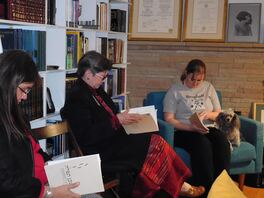
One of my favorite passages in Pirkei Avot consists of three couplets by Hillel. Here they are interspersed with my own comments:
“A boor does not fear sin,
And the ignorant cannot be models of piety.”
It’s striking that the English word for an oaf echoes the Hebrew word ‘bor.’ A ‘bor’ is an empty pit, which is synonymous with someone who is empty-headed.
Above all else, Hillel valued knowledge of Torah. Yet he esteemed knowledge not merely for its own sake but so learning would lead to righteous behavior.
“A bashful person does not learn,
And the short-tempered cannot teach.”
I can recall many students who would sit quietly in class while others did most of the talking. Yet Hillel reminds students to speak-up. Productive learning takes place when students are engaged. Just as importantly, it is vital for teachers to welcome class in-put and participation. Instructors who are short-tempered intimidate their students, deteriorating the learning environment.
“Not all who succeed in business are wise.
In a place where there are no people* strive to be one.”
Hillel reminds us not to give undue deference to people who are successful in business. Tevye in Fiddler in the Roof may long to be a rich man, singing “When you are rich they think you really know.” Hillel informs us that material success is not synonymous with wisdom.
In the concluding verse, Hillel admonishes us to act morally even when others are behaving inhumanely. He encourages us to strive for virtue, even when others are not. No matter the circumstances, Hillel inspires us to be our best selves, to aspire to be a mensch.
This is a message that I want students to take to heart.
SPEAK UP
DON'T STAY WITH A TEACHER WHO IS INTIMIDATING
Jewish tradition values study, questions, and argument (for the sake of heaven). Don't be silent. Participate in your own learning.
*The original, as you can imagine, says “man” or mensch – a good person. Where there are no good people, strive to be one. You can read the original text here.

 RSS Feed
RSS Feed